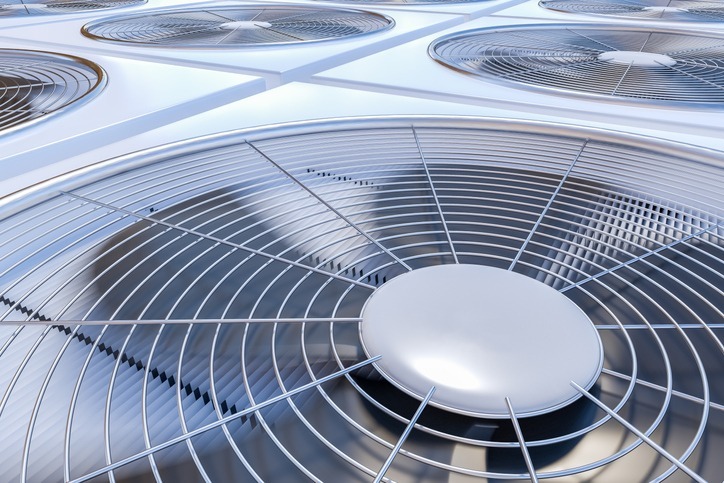Regular inspection and maintenance of HVAC (Heating, Ventilation, and Air Conditioning) systems are crucial to ensure their efficient and reliable operation. HVAC systems play a vital role in maintaining indoor comfort, air quality, and energy efficiency. To maximize the lifespan of the equipment and prevent costly breakdowns, it’s essential to establish a routine inspection schedule with a professional HVAC company.
Find out the recommended frequency for HVAC inspections and the benefits of regular maintenance. By prioritizing HVAC inspections and maintenance, homeowners can enjoy peace of mind, lower energy costs, and a comfortable living environment throughout the year.
Annual Inspections
Annual inspections are a fundamental part of HVAC maintenance and should be conducted by a qualified HVAC technician. These comprehensive inspections cover both heating and cooling components and involve a thorough examination of the system’s key elements, including:
Heating System:
During the inspection, the technician will assess the condition and performance of the furnace or heat pump. They will check for proper ignition, burner operation, gas leaks, and airflow. Any necessary adjustments, cleaning, or component replacements will be made.
Cooling System:
The technician will evaluate the air conditioner or heat pump to ensure it is operating efficiently. They will inspect the refrigerant levels, clean the coils, check electrical connections, and verify the overall performance of the cooling unit.
Air Distribution System:
The inspection includes an assessment of the ductwork, air filters, and airflow throughout the system. The technician will inspect for leaks, clean or replace filters, and ensure proper ventilation in each room.
Safety Check:
As part of the annual inspection, the technician will conduct safety checks, such as testing carbon monoxide levels, verifying electrical connections, and ensuring the system meets relevant codes and standards.
Seasonal Inspections
In addition to annual inspections, it’s beneficial to conduct seasonal inspections before the start of the heating and cooling seasons. These inspections focus on preparing the system for the upcoming season and addressing any specific maintenance requirements:
Heating Season Inspection:
Before the winter months, a pre-season inspection of the heating system is recommended. This includes cleaning or replacing filters, checking the thermostat, inspecting the ignition system, and ensuring proper heat distribution.
Cooling Season Inspection:
Prior to the summer season, it’s advisable to conduct a pre-season inspection of the air conditioning system. The technician will clean or replace filters, check the refrigerant levels, test the condensate drain, inspect the compressor, and ensure optimal cooling performance.
Monthly Maintenance Tasks
While professional inspections are essential, there are also monthly maintenance tasks that homeowners can perform to keep their HVAC systems in good condition:
Filter Maintenance:
Check and clean or replace air filters on a monthly basis. Clogged filters restrict airflow, decrease efficiency, and can lead to system malfunctions.
Visual Inspection:
Regularly inspect the HVAC system for any visible signs of damage, leaks, or unusual noises. Look for loose connections, damaged wiring, or debris around the outdoor unit.
Thermostat Settings:
Adjust the thermostat settings according to seasonal needs and energy-saving preferences. Consider using programmable thermostats for more precise temperature control and energy efficiency.
Benefits of Regular Inspections and Maintenance
Regular HVAC inspections and maintenance offer numerous advantages:
Energy Efficiency:
Well-maintained HVAC systems operate more efficiently, reducing energy consumption and lowering utility bills.
Enhanced Performance:
Regular inspections and maintenance help prevent system malfunctions and optimize the performance of heating and cooling components.
Extended Lifespan:
Proper maintenance increases the lifespan of HVAC equipment, reducing the need for premature replacements and saving money in the long run.
Improved Indoor Air Quality:
Clean filters and regular ductwork inspections contribute to better indoor air quality by reducing dust, allergens, and contaminants.
Preventive Measures:
Inspections can identify potential issues before they escalate into major problems, saving homeowners from costly repairs and unexpected breakdowns.
Conclusion
Regular inspection and maintenance are essential for HVAC systems to ensure optimal performance, energy efficiency, and indoor comfort. Annual inspections conducted by qualified technicians from an HVAC company, along with seasonal and monthly maintenance tasks, form a comprehensive approach to HVAC care. By adhering to a regular inspection schedule and addressing any maintenance needs promptly, homeowners can maximize the lifespan of their HVAC systems, reduce energy costs, and enjoy a comfortable and healthy indoor environment throughout the year.

